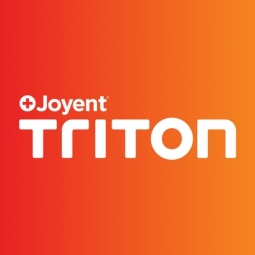下载PDF
Wanelo Success Story
技术
- 平台即服务 (PaaS) - 应用开发平台
适用行业
- 电子商务
- 零售
适用功能
- 销售与市场营销
- 商业运营
用例
- 供应链可见性(SCV)
- 零售店自动化
服务
- 云规划/设计/实施服务
挑战
Wanelo, a community for all of the world’s shopping, was experiencing a surge in popularity and traffic to its website and mobile apps. The company wanted a cloud environment that was designed for performance and could cost-effectively handle traffic surges. The company's growth, expressed in terms of requests per minute (RPMs), took off in a period of approximately four months following a major site rewrite. Wanelo wanted a cloud environment that could handle the evening surges without a cost penalty or needing to overprovision the system to accommodate those times of peak traffic. They also wanted more OS functionality than Linux.
关于客户
Wanelo is a community for all of the world’s shopping. It brings together all stores, products and people into a single social platform. Founded in 2010, Wanelo has eight million registered users, with users spending an average of 50 minutes per day on Wanelo. Users can browse among six million products posted by community members from over 200,000 stores, from online stores ranging from large brands to independent Etsy vendors. The company is based in San Francisco, California.
解决方案
Wanelo chose Joyent Compute Service to handle its growing public cloud needs. The Joyent Compute Service gave Wanelo excellent CPU performance and fast, true hardware I/O throughput. The company also enjoyed working with SmartOS because it gave them functionality they would not get from other clouds, such as bursting, ZFS, ARC cache, and SMF for service management. The way Wanelo provisions its machines is to adjust them to serve medium traffic. This feature contributes to cost savings. The company also appreciated the great customer support from Joyent.
运营影响
数量效益
相关案例.

Case Study
Improving Production Line Efficiency with Ethernet Micro RTU Controller
Moxa was asked to provide a connectivity solution for one of the world's leading cosmetics companies. This multinational corporation, with retail presence in 130 countries, 23 global braches, and over 66,000 employees, sought to improve the efficiency of their production process by migrating from manual monitoring to an automatic productivity monitoring system. The production line was being monitored by ABB Real-TPI, a factory information system that offers data collection and analysis to improve plant efficiency. Due to software limitations, the customer needed an OPC server and a corresponding I/O solution to collect data from additional sensor devices for the Real-TPI system. The goal is to enable the factory information system to more thoroughly collect data from every corner of the production line. This will improve its ability to measure Overall Equipment Effectiveness (OEE) and translate into increased production efficiencies. System Requirements • Instant status updates while still consuming minimal bandwidth to relieve strain on limited factory networks • Interoperable with ABB Real-TPI • Small form factor appropriate for deployment where space is scarce • Remote software management and configuration to simplify operations

Case Study
How Sirqul’s IoT Platform is Crafting Carrefour’s New In-Store Experiences
Carrefour Taiwan’s goal is to be completely digital by end of 2018. Out-dated manual methods for analysis and assumptions limited Carrefour’s ability to change the customer experience and were void of real-time decision-making capabilities. Rather than relying solely on sales data, assumptions, and disparate systems, Carrefour Taiwan’s CEO led an initiative to find a connected IoT solution that could give the team the ability to make real-time changes and more informed decisions. Prior to implementing, Carrefour struggled to address their conversion rates and did not have the proper insights into the customer decision-making process nor how to make an immediate impact without losing customer confidence.

Case Study
Digital Retail Security Solutions
Sennco wanted to help its retail customers increase sales and profits by developing an innovative alarm system as opposed to conventional connected alarms that are permanently tethered to display products. These traditional security systems were cumbersome and intrusive to the customer shopping experience. Additionally, they provided no useful data or analytics.

Case Study
Ensures Cold Milk in Your Supermarket
As of 2014, AK-Centralen has over 1,500 Danish supermarkets equipped, and utilizes 16 operators, and is open 24 hours a day, 365 days a year. AK-Centralen needed the ability to monitor the cooling alarms from around the country, 24 hours a day, 365 days a year. Each and every time the door to a milk cooler or a freezer does not close properly, an alarm goes off on a computer screen in a control building in southwestern Odense. This type of alarm will go off approximately 140,000 times per year, equating to roughly 400 alarms in a 24-hour period. Should an alarm go off, then there is only a limited amount of time to act before dairy products or frozen pizza must be disposed of, and this type of waste can quickly start to cost a supermarket a great deal of money.

Case Study
Supermarket Energy Savings
The client had previously deployed a one-meter-per-store monitoring program. Given the manner in which energy consumption changes with external temperature, hour of the day, day of week and month of year, a single meter solution lacked the ability to detect the difference between a true problem and a changing store environment. Most importantly, a single meter solution could never identify root cause of energy consumption changes. This approach never reduced the number of truck-rolls or man-hours required to find and resolve issues.






